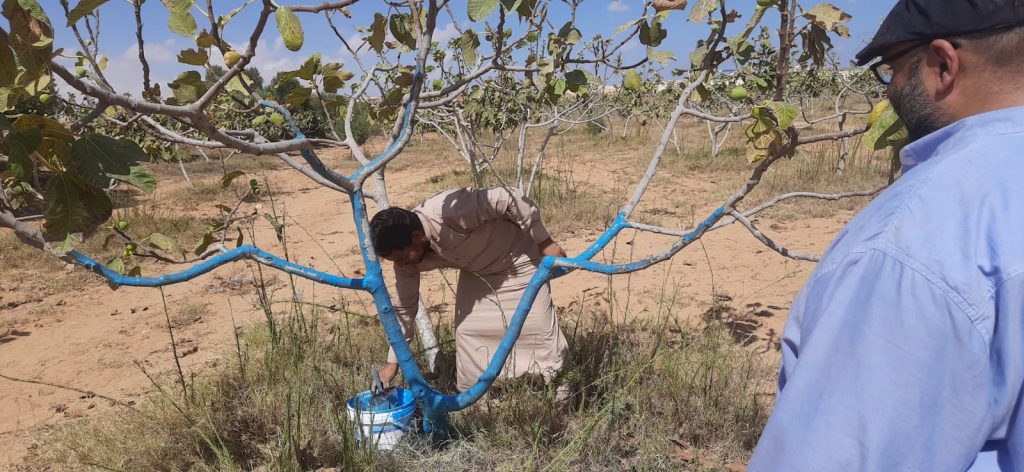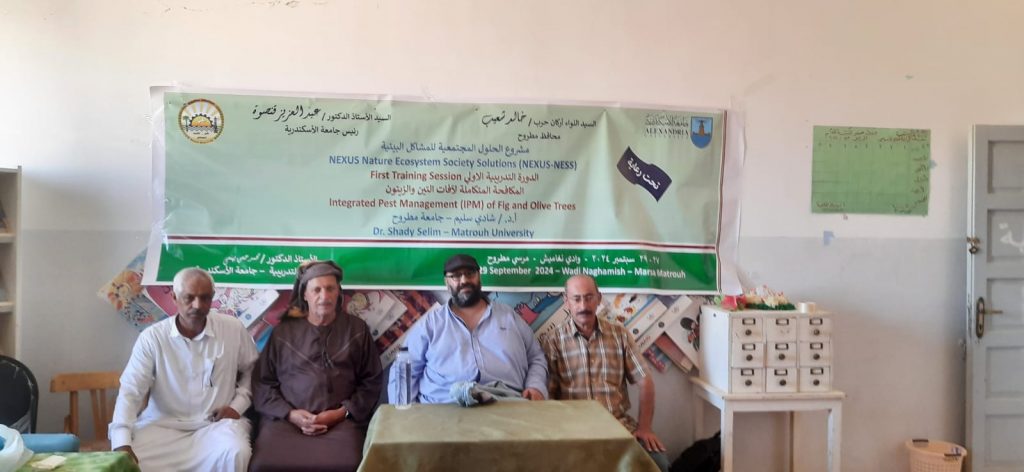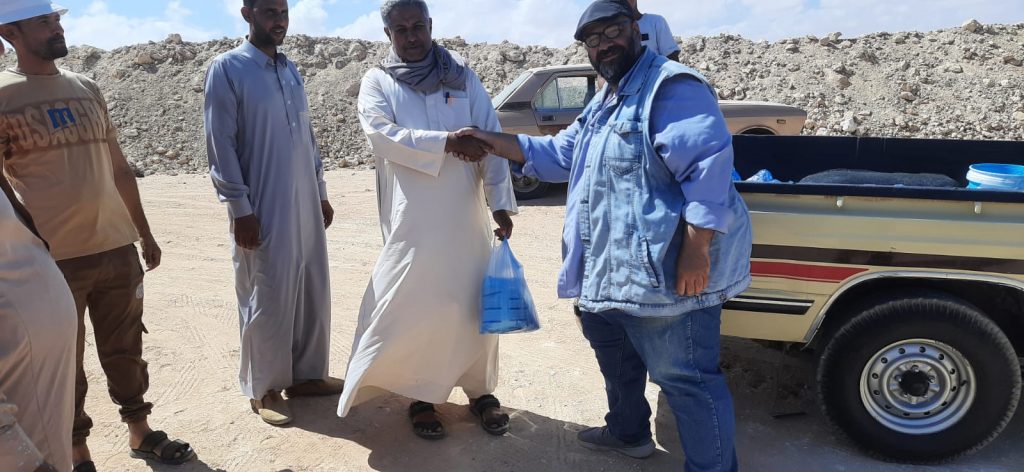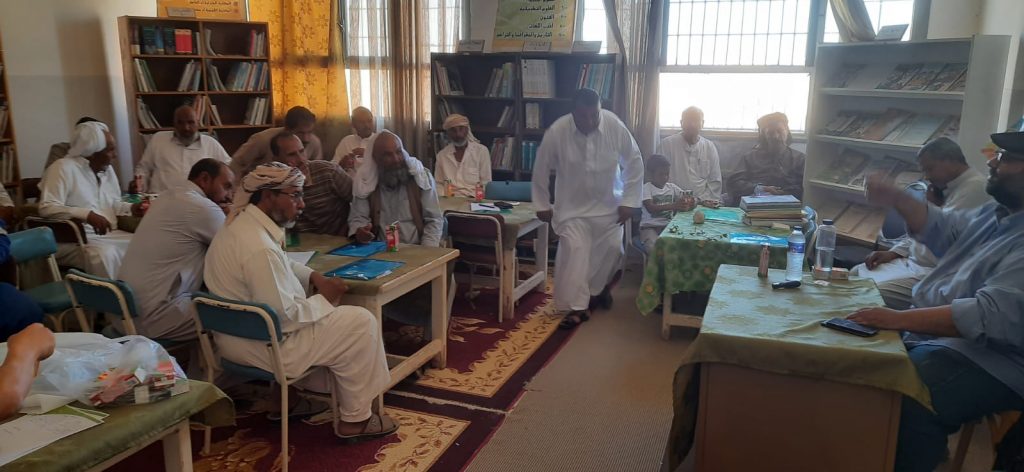Training of Stakeholders on Safe Pesticide Use and Integrated Pest Management (IPM) – 27-29 September 2024
From September 27th to 29th, 2024, an intensive training program was conducted to educate local stakeholders on the safe and effective use of pesticides, with a specific focus on Integrated Pest Management (IPM) for olive and fig trees. The training aimed to equip farmers and agricultural practitioners with the knowledge and skills necessary to reduce the environmental impact of pesticide use while maintaining crop health and productivity.

Key topics covered during the training included:
- Proper Application Techniques: Participants were taught best practices for applying pesticides, including the correct dosage, timing, and methods to minimize chemical runoff and drift.
- Safe Handling and Storage: The sessions emphasized safety measures for handling pesticides, including the use of personal protective equipment (PPE), proper storage conditions, and techniques for avoiding contamination of soil, water, and non-target plants.
- Pesticide Disposal: Special attention was given to the safe disposal of pesticide containers and residues to prevent environmental pollution and protect local biodiversity.
- Principles of IPM: The training provided an in-depth overview of IPM strategies, which prioritize non-chemical methods such as biological control, crop rotation, and the use of pest-resistant varieties. Chemical control was presented as a last resort, to be used only when other methods prove insufficient.
- Pest Identification and Monitoring: Stakeholders learned how to identify common pests affecting olive and fig trees and how to implement regular monitoring practices to assess pest population levels and decide on appropriate control measures.
The training concluded with practical field demonstrations, where participants applied their newly acquired knowledge under the guidance of experts. This hands-on approach ensured that they not only understood the theoretical aspects but also felt confident in implementing IPM techniques in their own agricultural operations.
By promoting IPM practices, the NEXUS-NESS project aims to reduce the reliance on chemical pesticides, improve soil and water quality, and support sustainable agricultural production. This initiative also contributes to safeguarding human health and preserving the natural ecosystem in Wadi Naghamish. Further follow-up activities and support will be provided to ensure the long-term adoption of these sustainable practices by local stakeholders.



